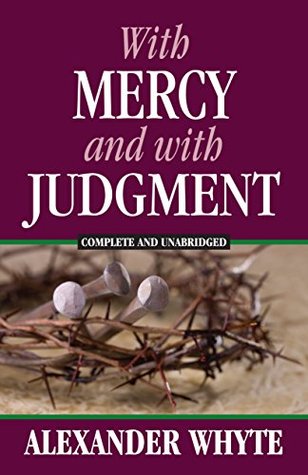- Bible
- Read the Bible
- Bible Versions
- Verse of the Day
- Reading Plans
- Verses by Topic
- Books of the Bible
- Bible Images
- Study
- Commentaries
- Concordances
- Dictionaries
- Encyclopedias
- Sermons
- Bible Atlas & Maps
- BP Wiki
- Devotionals
- Today's Devotionals
- Light of the World
- All Devotionals
- Inspirational Quotes
- More
- Picture Quotes
- Videos
- Inspirational
- Bible Study
- What The Bible Says
- Bible Q&As
- Daily Bread
- Bible by Genre
- Bible Stories
- Random Bible Verse
- Community
- Store
With Mercy and With Judgment
by Alexander Whyte
Harold St. John, a great Bible teacher and preacher of a previous generation, was once asked which commentaries and helps to Bible study he would recommend. His reply went something like this: “A man who deals with Scripture,” he said, “has a conscience which needs to be trained, a heart which must be warmed, and a will that should be yielded, and finally, a mind which must be fed. For the conscience, none is better than Alexander Whyte—his Lord, Teach Us to Pray and With Mercy and With Judgment will make his readers hot and ashamed.” And sometimes, being hot and ashamed is just what we need, spiritually speaking. “Do no put off reading Whyte’s sermons,” urges Warren Wiersbe in his 50 People Every Christian Should Know. The sermons found in this collection were deemed by the compilers to be representative of Dr. Whyte’s pulpit ministry. The title was taken from the hymn which was mostly closely associated with his ministry, being the one he chose perhaps oftener than any other for the close of a service.
BUY NOW
Kindle Edition, 202 pages
Published February 26th 2015 by Kingsley Press (first published June 14th 2013)
© 2026 Bibleportal.com All rights reserved.

Alexander Whyte was a Scottish preacher, with a passion for the lost. He was born at Kirriemuir in Forfarshire and educated at the University of Aberdeen and at New College, Edinburgh.
He entered the ministry of the Free Church of Scotland and after serving as colleague in Free St John's, Glasgow (1866-1870), removed to Edinburgh as colleague and successor to Dr RS Candlish at Free St Georges. In 1909 he succeeded Dr Marcus Dods as principal, and professor of New Testament literature, at New College, Edinburgh.
He will always be remembered for his preaching for no ruler has held his subjects more captive than Alexander Whyte did from his pulpit.
After suffering a heart attack followed by several minor attacks, Whyte resigned his post and retired to Buckinghamshire. There he devoted the remainder of his life to reading and writing. He died January 6, 1921 in his sleep.
Alexander Whyte was a Scottish preacher, with a passion for the lost. He was born at Kirriemuir in Forfarshire and educated at the University of Aberdeen and at New College, Edinburgh.
He entered the ministry of the Free Church of Scotland and after serving as colleague in Free St John's, Glasgow (1866-1870), removed to Edinburgh as colleague and successor to Dr RS Candlish at Free St Georges. In 1909 he succeeded Dr Marcus Dods as principal, and professor of New Testament literature, at New College, Edinburgh.
He will always be remembered for his preaching for no ruler has held his subjects more captive than Alexander Whyte did from his pulpit.
After suffering a heart attack followed by several minor attacks, Whyte resigned his post and retired to Buckinghamshire. There he devoted the remainder of his life to reading and writing. He died January 6, 1921 in his sleep.
... Show more